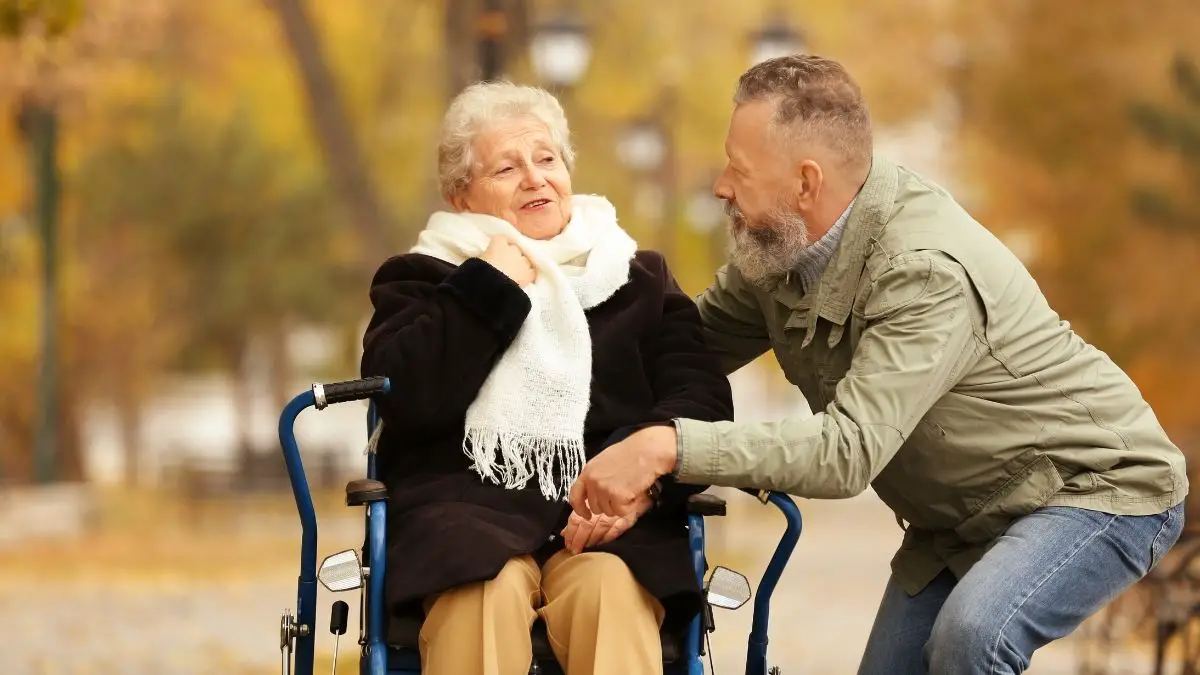Vacations for single senior citizens are gaining prominence as more individuals in this demographic seek enriching travel experiences. This exploration delves into the diverse options available, addressing planning, budgeting, safety, and social aspects crucial for a fulfilling and worry-free getaway. From relaxing retreats to adventurous expeditions, we’ll examine how seniors can tailor their vacations to their preferences and abilities, ensuring a memorable and enriching journey.
This guide provides comprehensive information on various vacation types suitable for single senior citizens, considering activity levels, accessibility, and budget. We’ll explore popular destinations, offering insights into senior-friendly accommodations and transportation options. Crucially, we’ll also discuss safety, health precautions, and strategies for combating loneliness and fostering social connection during solo travel.
Types of Vacations
Planning a vacation as a single senior citizen offers a unique opportunity for relaxation, exploration, and personal growth. Choosing the right type of vacation is crucial for maximizing enjoyment and ensuring a safe and fulfilling experience. Factors such as budget, mobility, and personal interests should all be considered.
Vacation Options for Single Senior Citizens
The following table categorizes vacation types suitable for single senior citizens based on activity level, providing descriptions and example locations. These options offer diverse experiences catering to various preferences and physical capabilities.
| Vacation Type | Activity Level | Description | Sample Location |
|---|---|---|---|
| Relaxing Beach Getaway | Low | Enjoy sun, sand, and sea with minimal exertion. Ideal for rest and rejuvenation. Often includes spa treatments and leisurely walks. | Maui, Hawaii; Algarve, Portugal |
| Cultural City Break | Moderate | Explore museums, historical sites, and local markets at your own pace. Combines sightseeing with opportunities for social interaction. | Florence, Italy; Kyoto, Japan |
| Adventure Cruise | Moderate to High | Experience diverse destinations with convenient onboard amenities. Many cruises offer excursions catering to varying fitness levels. | Alaska Cruise; Mediterranean Cruise |
| Wellness Retreat | Low to Moderate | Focus on improving physical and mental well-being through yoga, meditation, healthy eating, and spa treatments. Provides a structured environment for self-care. | Sedona, Arizona; Costa Rica |
Benefits and Drawbacks of Vacation Types
Each vacation type presents unique advantages and disadvantages for single senior citizens. Relaxing getaways prioritize rest and recovery, but may lack stimulation. Cultural city breaks offer enriching experiences but require more physical activity and potentially navigating unfamiliar environments. Adventure cruises provide diverse experiences but may be costly and involve more strenuous activities. Wellness retreats focus on well-being but may not appeal to all preferences.
Careful consideration of individual needs and preferences is crucial.
Examine how masonic village elizabethtown can boost performance in your area.
Cost and Accessibility Comparison
A visual representation (imagine a bar graph) would show the relative cost and accessibility of each vacation type. For example, a relaxing beach getaway in a less expensive location would likely be more accessible and less costly than a luxury wellness retreat in a remote location. Similarly, an adventure cruise could be more expensive than a cultural city break, but accessibility might depend on the cruise line’s amenities and the chosen excursions.
The graph would clearly illustrate these cost and accessibility variations, helping seniors make informed decisions based on their budgets and physical capabilities. For instance, a budget-conscious senior might opt for a relaxing beach vacation in a domestic location, while a senior with higher disposable income and good health might choose an adventure cruise.
Budgeting and Planning
Planning a fulfilling and affordable vacation as a single senior citizen requires careful budgeting and strategic planning. This involves considering various factors and making informed decisions to maximize enjoyment while minimizing expenses. A well-structured budget and itinerary are crucial for a stress-free and memorable trip.
Sample Vacation Budget
A sample budget for a week-long vacation for a single senior citizen can vary greatly depending on destination and travel style. However, a realistic breakdown can help in initial planning. This example assumes a trip to a moderately priced domestic destination within the United States.
| Category | Estimated Cost |
|---|---|
| Airfare/Transportation | $300 – $500 (Consider budget airlines, off-season travel, or driving) |
| Accommodation (Hotel/Airbnb) | $500 – $700 (Look for discounts for seniors or weekly rates) |
| Activities & Entrance Fees | $200 – $300 (Prioritize free activities like walking tours or parks) |
| Food & Dining | $300 – $400 (Mix of grocery shopping and moderate dining out) |
| Miscellaneous (Souvenirs, incidentals) | $100 – $200 |
| Total Estimated Cost | $1400 – $2100 |
This budget provides a general framework. Actual costs will depend on individual choices and destination.
Finding Affordable Travel Deals and Discounts
Numerous resources exist to help senior citizens find affordable travel deals. Taking advantage of these opportunities can significantly reduce overall vacation expenses.Several strategies are effective:
- Senior Discounts: Many airlines, hotels, and attractions offer discounts for travelers aged 65 and older. Always inquire about senior rates when booking.
- Travel Agencies Specializing in Senior Travel: These agencies often offer curated packages and deals tailored to the needs and preferences of senior travelers.
- AARP Membership: Membership in AARP provides access to travel discounts and deals, including hotel and car rental offers.
- Off-Season Travel: Traveling during the shoulder seasons (spring and fall) or off-peak times can result in lower prices for flights and accommodation.
- Package Deals: Consider booking package deals that combine flights, accommodation, and sometimes activities, often at a lower cost than booking individually.
- Loyalty Programs: Enrolling in airline and hotel loyalty programs can earn points or miles that can be redeemed for future travel discounts.
Planning a Balanced Vacation Itinerary
A well-planned itinerary balances relaxation with sightseeing and social interaction, catering to the preferences of the individual senior traveler. This approach prevents exhaustion and ensures a memorable experience.To achieve this balance:
- Incorporate Rest Days: Schedule days for relaxation and downtime, allowing ample time for rest and rejuvenation.
- Pace Yourself: Avoid over-scheduling activities. Prioritize the must-see attractions and allow flexibility for spontaneous exploration.
- Choose Activities that Match Your Fitness Level: Opt for activities that are comfortable and enjoyable without causing undue physical strain.
- Consider Joining Organized Tours or Groups: This can provide a structured itinerary, opportunities for social interaction, and potentially discounted rates.
- Plan for Downtime and Relaxation: Incorporate leisurely activities such as reading, enjoying the scenery, or simply relaxing at the hotel.
- Explore Local Community Events: Check local event listings for festivals, concerts, or other activities that offer opportunities for social interaction.
Safety and Health: Vacations For Single Senior Citizens
Solo travel for senior citizens presents unique considerations regarding health and safety. Prioritizing these aspects ensures a more enjoyable and worry-free vacation experience. Careful planning and proactive measures significantly mitigate potential risks, allowing for a fulfilling trip.
Maintaining good health and safety while traveling alone requires a multi-pronged approach. This includes pre-trip preparations, awareness during travel, and readily available resources in case of emergencies. For example, ensuring adequate travel insurance is crucial, as is having a well-defined communication plan with loved ones back home.
Essential Health and Safety Precautions
Several key precautions can significantly enhance the safety and well-being of single senior citizens traveling abroad. These range from practical steps to more comprehensive preparations, all designed to minimize risks and maximize peace of mind.
- Consult your physician: A pre-trip checkup is vital, particularly for those with pre-existing health conditions. Discuss necessary vaccinations, medications, and potential health concerns related to your destination. Obtain any required prescriptions well in advance.
- Pack a comprehensive first-aid kit: Include essential medications, bandages, antiseptic wipes, pain relievers, and any personal medical supplies. Consider carrying a copy of your medical history and emergency contact information.
- Inform your bank and phone provider: Notify your bank and mobile phone provider of your travel dates and destinations to avoid any issues with accessing funds or using your phone abroad. Consider a portable charger for your phone.
- Make copies of important documents: Keep copies of your passport, visa (if required), travel insurance information, and other crucial documents separately from the originals. Store electronic copies in cloud storage as a backup.
- Stay aware of your surroundings: Be mindful of your belongings and avoid walking alone in poorly lit or isolated areas, especially at night. Trust your instincts and avoid situations that make you feel uncomfortable.
Recommended Travel Insurance Options and Coverage
Travel insurance is not merely a suggestion; it’s a necessity for single senior citizens traveling alone. Different policies offer varying levels of coverage, so selecting the right one is paramount. Consider the specific risks associated with your trip and choose a plan that addresses those concerns.
- Comprehensive Travel Insurance: This typically covers medical emergencies, trip cancellations, lost luggage, and other unforeseen events. Examples include policies offered by companies like Allianz Global Assistance and World Nomads, though specific coverage varies by plan.
- Medical Evacuation Insurance: This is crucial, especially for seniors with pre-existing conditions or those traveling to remote locations. It covers the costs of emergency medical transport back home if needed.
- Trip Cancellation Insurance: This protects your investment if you need to cancel your trip due to unforeseen circumstances such as illness or family emergencies.
Staying Connected with Family and Friends
Maintaining contact with loved ones provides peace of mind and a sense of security while traveling alone. Several methods ensure regular communication and readily available support if needed.
- Regular check-in calls: Schedule regular calls with family or friends to update them on your trip and let them know you’re safe.
- Share your itinerary: Provide a detailed itinerary to a trusted contact, including your accommodation details, planned activities, and emergency contact information.
- Utilize communication apps: Apps like WhatsApp, Skype, or FaceTime allow for easy video calls and messaging, even with limited data access.
- Consider a satellite phone: For trips to remote areas with limited cellular service, a satellite phone can provide essential communication backup.
Social and Community Aspects

Vacations, especially for single senior citizens, present a unique opportunity to combat loneliness and foster a sense of community. Travel can be a powerful antidote to isolation, providing chances to connect with like-minded individuals and explore new environments together. The key lies in proactively seeking out social interaction and choosing travel options that facilitate community engagement.The potential for social connection is significant.
Many senior citizens find themselves with more free time after retirement, yet maintaining a robust social network can be challenging. Vacations offer a structured environment where meeting new people is not only possible but often encouraged. This is especially true when choosing travel experiences specifically designed for solo travelers of a similar age.
Finding Group Tours and Activities
Finding suitable group tours and activities designed for single senior citizens is easier than ever. Numerous travel agencies specialize in catering to this demographic, offering escorted tours with built-in opportunities for social interaction. These tours often include planned activities, excursions, and social gatherings, minimizing the feeling of isolation. Online search engines, using s like “senior travel groups,” “single senior tours,” or “solo travel for seniors,” will yield a plethora of options.
Additionally, many senior centers and community organizations offer travel programs specifically designed for their members, providing a familiar and comfortable social setting. Consider checking local listings or contacting organizations specializing in senior travel for customized options. Many cruise lines also cater to this demographic, offering a variety of activities and social events onboard.
Combating Loneliness While Traveling Solo
Even when not participating in organized group tours, single senior citizens can take steps to minimize loneliness while traveling solo. Choosing accommodations that encourage social interaction, such as hostels designed for mature travelers or guesthouses with communal areas, can provide opportunities for casual conversations and friendships. Participating in local activities and events, such as cooking classes, walking tours, or cultural performances, offers a chance to connect with locals and other travelers.
Utilizing social media groups or online forums dedicated to solo travel can help establish connections before, during, and after a trip, creating a supportive network of fellow travelers. Consider keeping a travel journal to document experiences and reflect on personal growth. This act of self-reflection can be surprisingly therapeutic and help maintain a sense of connection even when physically alone.
Finally, staying connected with loved ones back home through regular communication – phone calls, video chats, or emails – is crucial in maintaining a strong support system.
Technology and Travel
Technology has revolutionized the travel experience, offering senior citizens unprecedented ease and safety in planning and executing their vacations. From booking flights and accommodations to navigating unfamiliar cities and staying connected with loved ones, a well-chosen suite of technological tools can transform a potentially daunting solo trip into a smooth and enjoyable adventure. This section explores how technology can empower senior travelers to confidently explore the world.Harnessing the power of technology for travel planning allows seniors to compare prices, read reviews, and book services with ease from the comfort of their homes.
Websites and apps dedicated to travel offer comprehensive search capabilities, filtering options to match individual needs and preferences, and secure payment gateways. This minimizes the stress associated with traditional booking methods, particularly beneficial for those who may prefer a less physically demanding planning process. Furthermore, digital tools offer access to real-time information, allowing for flexible itinerary adjustments based on weather conditions, unforeseen events, or personal preferences.
Utilizing Technology for Vacation Planning and Management
Several websites and apps streamline the vacation planning process. For example, Kayak or Expedia allow users to compare flight and hotel prices across multiple providers. Booking.com offers a vast selection of accommodations with detailed reviews and photos, while TripAdvisor provides user-generated reviews and ratings for attractions, restaurants, and activities. These tools facilitate informed decision-making, enabling seniors to select options best suited to their budgets, accessibility needs, and travel styles.
Furthermore, many platforms offer personalized recommendations based on past travel history and preferences, further simplifying the planning process. Dedicated travel apps often incorporate features such as itinerary management, packing lists, currency converters, and translation tools, providing comprehensive support throughout the entire trip.
Technology Enhancing Safety and Communication While Traveling Alone
Traveling solo can present unique safety challenges, but technology offers several solutions to mitigate these risks. GPS tracking apps, such as Life360 or Find My, allow loved ones to monitor a senior traveler’s location in real-time, providing peace of mind for both the traveler and their family. Emergency communication apps, such as ICE (In Case of Emergency) or similar services, can quickly alert pre-selected contacts in case of an accident or emergency.
Many smartphones also have built-in emergency features that can automatically contact local emergency services. Using a secure mobile payment system, such as Apple Pay or Google Pay, minimizes the need to carry large amounts of cash, reducing the risk of theft. Finally, learning basic phrases in the local language using translation apps can facilitate communication and potentially prevent misunderstandings.
Essential Apps for Senior Travelers, Vacations for single senior citizens
Senior travelers can benefit from a curated selection of apps designed to enhance their travel experience. A list of essential apps includes:
- Google Maps/Apple Maps: Provides detailed maps, navigation, and location services, essential for navigating unfamiliar areas.
- TripAdvisor: Offers user reviews and ratings for various attractions, restaurants, and accommodations.
- Booking.com/Expedia: Facilitates booking flights, hotels, and other travel services.
- Currency Converter: Helps manage finances and convert currencies accurately.
- Google Translate: Aids communication by translating text and speech in real-time.
- Life360/Find My: Enables location sharing with family and friends for safety and peace of mind.
- ICE (In Case of Emergency): Allows for quick contact with emergency contacts in case of an accident.
Planning a vacation as a single senior citizen doesn’t have to be daunting. With careful consideration of personal preferences, budget, and safety, a fulfilling and enriching travel experience is entirely achievable. By utilizing available resources, planning ahead, and embracing the opportunities for social interaction, seniors can enjoy memorable adventures that enhance their well-being and create lasting memories. Remember, the journey is just as important as the destination.



